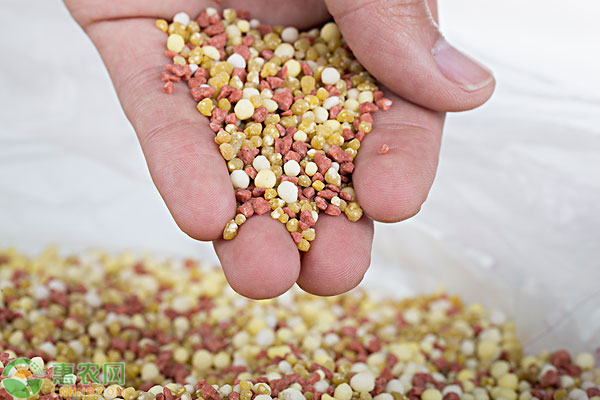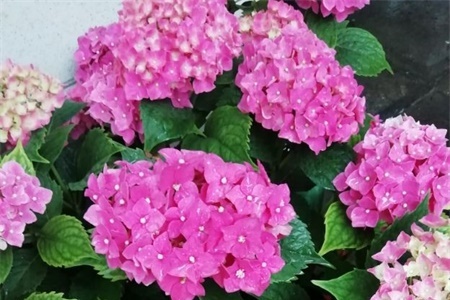How to choose cultivated species of Edible Fungi
Edible fungi are rich in nutrition and delicious. With the improvement of people's living standards, edible fungi are increasingly favored by the majority of consumers. At present, there are more than 90 kinds of edible fungi that can be cultivated artificially, more than ten kinds of edible fungi are produced commercially, and dozens of rare species are produced less, so how to choose the cultivated species? To put it simply, the choice is based on only two market and production conditions. This requires a lot of investigation and analysis. As a professional strain factory, the species should be selected according to the needs of the growers, the mushroom farms and farmers for self-use should be selected according to the market and production conditions, and the cultivated species should also be selected according to the market and production conditions. Specifically, the following work should be done when selecting cultivated species:
1 market survey
Only when the products meet the market demand, can the ideal economic and social benefits be obtained. Different cultivation models, different production models and different market positioning require different scope and depth of investigation.
1.1 Local market survey
The local market survey includes the existing mushroom species, sales quantity, product forms (dry products, fresh products, salinized products, canned goods, etc.), consumption trends (changes in types, changes in consumption of different types and their product forms, etc.) and prices (ex-factory price, wholesale price, retail price), resources of products sold in the existing market, etc. Through investigation and analysis, this paper makes a basic estimation of market capacity and recent price changes. If the cultivation site is far away from the densely populated large and medium-sized cities, the transportation is inconvenient, and the products are sold almost on the spot, then the investigation of the local market is particularly important. Whether it is intensive production of mushroom farms and enterprises or small-scale family production of mushroom farmers, this survey is very necessary.
1.2 domestic market and market survey
For the production enterprises and promotion projects with large one-time investment, this survey is necessary, it is related to the success or failure of enterprises and promotion projects. Any commodity market has a degree and a capacity. beyond this degree, prices will naturally be reduced, affecting the economic benefits of producers. When there is a shortage, prices will naturally rise, so that the economic benefits of producers will increase. In order to obtain ideal economic returns, careful market and market surveys must be carried out, including the classified output of the whole country, the output and types of this province, autonomous region, municipality and neighboring provinces, autonomous regions and cities, and the quantity of different forms of products; the sales situation of the province, city, autonomous region and neighboring provinces, autonomous regions and cities (sales price, supply, quality, type, etc.); the requirements of the people in the scheduled sales market for mushroom products (type, flavor, texture, etc.).
1.3 Foreign market and market survey
China is a large country in the production of edible fungi, and a large number of products are exported every year, but the price has been unstable and unsatisfactory in recent years. Therefore, enterprises whose product market is scheduled to be located in export must carry out this survey in order to reasonably design mushroom farms and select suitable mushrooms, varieties and corresponding technical routes. The investigation of foreign market is mainly through the foreign trade department and customs. The departments engaged in the export of edible mushroom products in China are mainly national and provincial, municipal and district-level import and export companies, native animal products companies, grain and oil companies, supply and marketing cooperatives and so on. The content of the investigation should not only include mushroom species, quantity, price, etc., but also have a detailed understanding of product specifications and varieties. Do not produce blindly and cause undue losses.
2 investigation of production conditions
The production of any kind of edible fungus requires certain production conditions, and there are similarities and differences between different species, which can not be ignored. In addition to fixed housing sites and facilities, there are generally three aspects of production conditions, namely, raw materials, meteorological conditions and transportation distance.
2.1 Raw materials
Mainly consumable raw materials, such as a large number of culture materials, followed by holding materials, such as commonly used various specifications of plastic cylinders, plastic bags and so on. Culture materials have natural resources in the vast rural areas of our country, but plastic bags and cylinders are more difficult to buy in areas where there is no industry, so it is necessary to contact the relevant manufacturers in advance. The culture materials for cultivation should be used locally as far as possible, which can ensure the quality and reduce the cost. At the same time, in a sense, whether the culture materials can be used locally is also an important factor of whether the cultivated mushroom species can occupy the competitive advantage in the market. For example, the largest use of Agaricus bisporus is wheat straw and rice straw. if it is cultivated in forest areas without these raw materials and such materials should be transported from afar, the cultivation cost will be greatly increased, and it is not only difficult to prepare materials in culture. it also makes the product lose its market competitive advantage, thus losing the possibility of its cultivation. Therefore, we advocate the cultivation of mushrooms that are easy to use local materials.
2.2 Meteorological conditions
Whether the local climatic conditions are suitable or not is an important factor in the success of growing mushrooms. The cost of creating suitable environmental conditions can be greatly reduced by cultivating edible fungi under suitable meteorological conditions or making use of the season of suitable meteorological conditions. Meteorological conditions are often the key factor in the selection of mushroom species. For example, the temperature of straw mushroom fruiting body should not be lower than 24 ℃, and the suitable temperature is 26-30 ℃. In northeast China, the outdoor temperature at night in summer is often lower than 24 ℃, so it is difficult to meet the needs of straw mushroom production, so it is difficult to produce straw mushroom commercially. Guangdong and Guangxi in the south can be cultivated almost every year except for a few months in winter.
2.3 Market distance
Market distance is an important factor that must be considered in the development of edible fungus production. Mushrooms are planted in places close to large and medium-sized cities, mainly suitable for fresh sales, such as Lentinus edodes, Pleurotus ostreatus, Flammulina velutipes, straw mushrooms, etc., while remote villages or mountainous areas far away from large and medium-sized cities with limited fresh sales should be based on mushrooms suitable for drying, such as Lentinus edodes, fungus, Auricularia auricula and so on. Under the premise of signing the purchase contract, mushroom species suitable for making canned or other simply processed products can also be cultivated, such as Agaricus bisporus, Pleurotus ostreatus, Flammulina velutipes, Flammulina velutipes, etc., but the scale should be moderate to avoid sales difficulties and product backlog. Can not achieve due economic benefits.
Related
- Fuxing push coffee new agricultural production and marketing class: lack of small-scale processing plants
- Jujube rice field leisure farm deep ploughing Yilan for five years to create a space for organic food and play
- Nongyu Farm-A trial of organic papaya for brave women with advanced technology
- Four points for attention in the prevention and control of diseases and insect pests of edible fungi
- How to add nutrient solution to Edible Fungi
- Is there any good way to control edible fungus mites?
- Open Inoculation Technology of Edible Fungi
- Is there any clever way to use fertilizer for edible fungus in winter?
- What agents are used to kill the pathogens of edible fungi in the mushroom shed?
- Rapid drying of Edible Fungi



